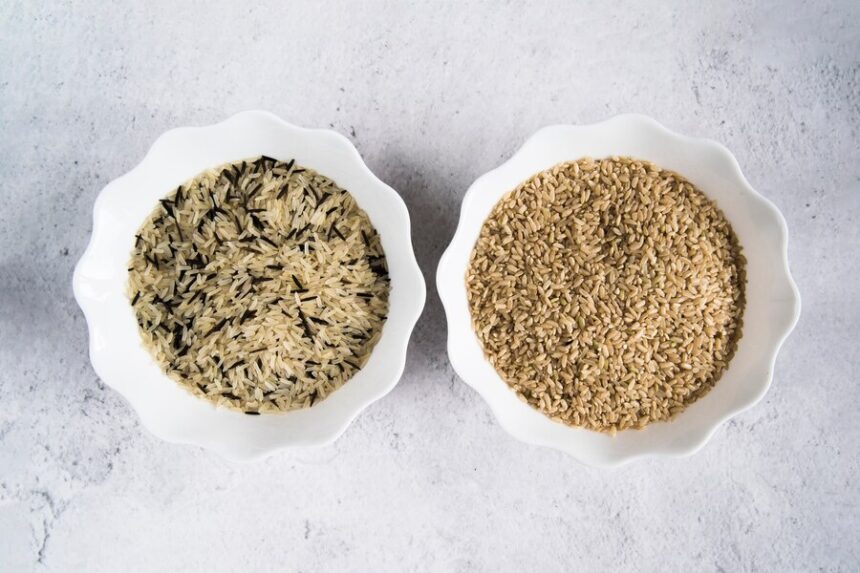Psyllium husk powder is gaining popularity as a natural solution for various health issues. This soluble fiber supplement can effectively support digestion and may help in managing cholesterol levels and blood sugar. Many people turn to psyllium husk for its ability to promote regular bowel movements and aid in weight management.
As more individuals seek natural remedies to improve their health, psyllium husk powder offers several benefits worth exploring. From enhancing gut health to supporting heart health, its uses are broad. Understanding how to use it safely and effectively can empower readers to incorporate this supplement into their daily routines.
With its gentle nature, psyllium husk can be a great addition to many diets. Readers will learn about the potential side effects and the best practices for usage, ensuring they can make informed choices.
Key Takeaways of Psyllium Husk Powder
- Psyllium husk powder is a soluble fiber that supports digestion and overall health.
- It can aid in managing cholesterol levels and blood sugar.
- Knowing the right usage and any potential side effects ensures safe consumption.
What Is Psyllium Husk Powder?
Psyllium husk powder comes from the seeds of the Plantago ovata plant. It is a natural source of dietary fiber, commonly used as a supplement for digestive health. The powder offers several health benefits, making it a popular addition to many diets.
Origin and Botanical Background
Psyllium originates from India and is also found in parts of Iran and Pakistan. The Plantago ovata plant grows to about 1-2 feet tall and has slender, green leaves. The seeds are collected and husks are separated for use in various products.
These husks are rich in soluble fiber, which is the key to their health benefits. Traditionally, psyllium has been used for centuries in Ayurvedic medicine.
Composition and Properties
Psyllium husk powder is primarily composed of soluble fiber, which absorbs water and swells in the digestive tract. This characteristic helps regulate bowel movements and manage constipation.
Key components include:
- Soluble Fiber: Aids digestion and promotes gut health.
- Laxative Properties: Softens stool, making it easier to pass.
- Cholesterol Management: Can help lower cholesterol levels by binding to fats.
Psyllium husk is low in calories and contains no fat, which makes it a healthy addition to various dietary plans. It is usually available in powder, capsule, or tablet form, making it versatile for different users.
Health Benefits
Psyllium husk powder offers several important health benefits. It is known for promoting digestive health, supporting heart function, aiding in weight management, and helping to control blood sugar levels. Each benefit plays a unique role in improving overall wellness.
Digestive Health
Psyllium husk is primarily known for its positive effects on digestive health. This soluble fiber absorbs water and forms a gel-like substance in the intestines. This action helps soften stools and increase stool bulk, making it easier to pass.
- Constipation Relief: It is often used to relieve constipation, promoting regular bowel movements.
- Diarrhea Management: Interestingly, it can also help with diarrhea by absorbing excess water, thus firming up stools.
Regular intake can lead to a healthier gut and improved digestive function. This can contribute to a reduced risk of digestive disorders.
Heart Health
Psyllium has heart health benefits due to its cholesterol-lowering properties. Studies show it can help lower LDL (bad) cholesterol levels in the blood.
- Cholesterol Reduction: It does this by binding to bile acids, which are made from cholesterol. This process forces the body to use cholesterol to produce more bile acids, thus lowering cholesterol levels.
- Heart Disease Risk: Lower cholesterol can lead to a decreased risk of heart disease and related complications.
Incorporating psyllium husk into a daily diet can support cardiovascular wellness when combined with a healthy lifestyle.
Weight Management
Psyllium husk may assist with weight management. It helps promote a feeling of fullness, which can lead to reduced calorie intake.
- Satiety: The gel-like substance formed by psyllium in the stomach expands, making a person feel full.
- Caloric Control: This can help curb unhealthy snacking and lead to healthier eating habits.
Incorporating psyllium into meals can be an effective strategy for those looking to control their weight.
Blood Sugar Control
Psyllium husk can play a role in stabilizing blood sugar levels. It slows down the digestion and absorption of food in the intestines.
- Glucose Regulation: This helps in maintaining steady blood sugar levels after meals.
- Diabetes Management: Psyllium may be beneficial for individuals with diabetes as it can improve glycemic control.
Adding psyllium to a balanced diet can support better blood sugar management, especially for those monitoring their levels.


